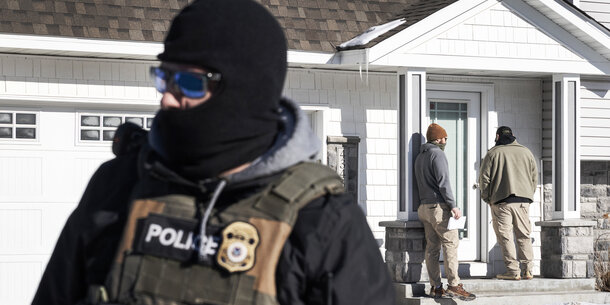Beginning in 2013, federal agents surreptitiously surveilled Travis Tuggle’s home in Mattoon, Illinois, for eighteen months as part of a drug trafficking investigation. The federal agents installed three video cameras on public utility poles facing Tuggle’s home without a warrant or court order, representing a massive intrusion on Tuggle’s privacy. The cameras recorded around the clock, capturing anybody who came and went from the home, as well as any packages that were delivered. Tuggle sought to suppress the evidence gathered by the surveillance footage, arguing that the surveillance violated his Fourth Amendment rights. The district court denied his motion, reasoning that the exterior of his house was visible to any passerby in the neighborhood and that he therefore did not have a reasonable expectation of privacy.
On July 14, 2021, the U.S. Court of Appeals for the Seventh Circuit affirmed the district court’s decision, holding that the Fourth Amendment permits long-term, warrantless, targeted video surveillance of a home. The court ruled that the surveillance did not constitute a search under existing Supreme Court precedent, but repeatedly expressed its concern about long-term surveillance in the digital age, while reasoning that curtailment of the government’s power should come from the Supreme Court or Congress. Tuggle appealed the Seventh Circuit’s decision to the Supreme Court.
The Brennan Center filed an amicus brief with the Supreme Court in support of Tuggle’s petition for certiorari, in partnership with the Electronic Frontier Foundation, the Center for Democracy and Technology, the Electronic Privacy Information Center, and the National Association of Criminal Defense Lawyers. Our brief argues three points.
First, the capabilities of surveillance have increased significantly, while the costs of surveillance have decreased just as significantly. Today’s pole camera technology already far exceeds the technology anticipated in the Supreme Court’s prior opinions. The cameras that the federal agents used to surveil Tuggle in 2013 were powerful, to be sure, with zoom lenses and lighting components that allowed officers to capture far more than what one can observe with the naked eye. An investigation using pole cameras now would likely include far more sophisticated technology, however, including digital and networked cameras, true “night vision,” and artificial intelligence to swivel and zoom automatically. At the same time, while the capabilities of camera surveillance technology have advanced, its costs have decreased, radically lowering the financial barriers to mass law enforcement use.
Second, we argue that because pole cameras enable long-term monitoring of private residences, they implicate the Fourth Amendment’s limitations on collection of data over time (even if actions are observable by the public) as well as data disclosing what happens in and around the home. That is, court cases have established that warrantless searches of the home and areas surrounding the home are unreasonable. Recent cases have also held that individuals maintain a reasonable expectation of privacy against prolonged government surveillance, even when they are in public view.
Third, the degree of privacy afforded by the Fourth Amendment should not depend on whether someone has built a fence around their property (which Tuggle had not done). A contrary rule would be overly detrimental to people with limited financial means – disproportionately likely to be individuals of color – who could not safeguard their privacy.
If the Supreme Court agrees to hear the case, the parties will file additional briefs explaining why the Court should rule in their favor.
The Brennan Center previously filed an amicus brief with the U.S. Court of Appeals for the Sixth Circuit in United States v. Houston, arguing that police must get a warrant to engage in long-term, covert surveillance of a home. The court denied the petition for rehearing en banc.

